Having a raccoon in your chimney is more than just an inconvenience; it can pose significant risks to your home and family. Addressing this issue promptly and safely is crucial. In this guide, we provide step-by-step instructions on raccoons in chimney removal and how to prevent future raccoon infestations effectively.
Why Do Raccoons Enter Chimneys?
Raccoons are incredibly adaptable and resourceful when it comes to finding shelter. Although hollow trees are their natural dens, chimneys offer similar advantages. Chimneys resemble hollow trees, providing a dark, enclosed space that offers safety and protection from predators and harsh weather conditions.
Additionally, chimneys retain heat from the house, making them inviting spots for raccoons seeking warmth, especially during colder months. Moreover, chimneys provide a safe place for mother raccoons to give birth and raise their young, offering protection from potential threats.
If you suspect a raccoon in your chimney, seeking professional assistance is essential for safe and humane removal. Trutech Inc. specializes in wildlife removal and can effectively handle raccoon issues, ensuring the well-being of both humans and animals.
Signs of Raccoons in Your Chimney
If you suspect raccoons have made their way into your chimney, there are several signs to look out for to confirm their presence. Being aware of these signs allows you to take the necessary steps to address the issue and ensure the safety of your home.
One of the most common raccoon signs is strange noises coming from within the chimney. Raccoons are active creatures, especially at night. If you hear scratching, scurrying, or chirping sounds, it could indicate the presence of raccoons. These noises often occur as raccoons move around, build nests, or communicate with each other.
Visible damage to your chimney is another indicator. Raccoons are strong climbers and can easily access your chimney, causing damage to the chimney cap, flue tiles, or chimney crown. If you notice broken or dislodged components, raccoons have likely been using your chimney as a den.
A foul odor in your home can also be a clear indication of raccoons in your chimney. Raccoon droppings, urine, and nesting materials emit a strong and unpleasant smell. If you detect an unusual odor near your fireplace or chimney, investigate further to determine if raccoons are the cause.
If you suspect a raccoon in your chimney, seeking professional assistance is crucial. Trutech Wildlife Service specializes in humane raccoon removal and chimney repairs. Our trained technicians can safely and effectively remove raccoons, clean up any mess, and repair any damage caused. Contact us today to schedule an inspection and ensure the well-being of your home.
Don't know what critter is in your chimney?
How Trutech Get Rid of Raccoons in Chimneys
If you suspect raccoons have made your chimney their home, addressing the situation promptly and safely is important. Here are the steps Trutech Wildlife Service takes to remove raccoons from your chimney:
Inspecting the chimney for raccoon presence: Examine your chimney for signs of raccoon activity. Look for droppings, claw marks, or unusual noises. If you spot any of these signs, raccoons have likely taken up residence.
Humane raccoon removal: The most effective method to remove a raccoon from a chimney is a cage trap at the top of the chimney. If kits are present, we can directly catch and relocate them after the adult raccoon has been trapped. We will never “smoke out” a raccoon or any animal. Lighting a fire is not humane, it can hurt or kill the animal, and increase the chance of catching your house on fire.
Sealing off any entry points: Once you have confirmed the raccoons are gone, preventing them from entering your chimney again is crucial. One effective method is installing a chimney cap.
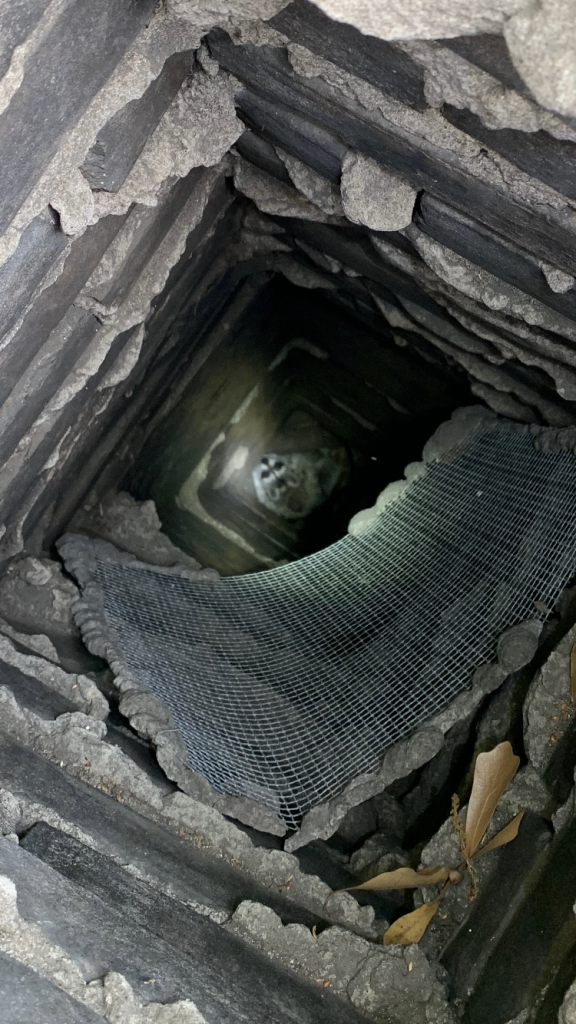
Preventing Raccoon Entry into Your Chimney
Having a raccoon in your chimney can be a nuisance and potentially dangerous. These clever creatures are known for their ability to find their way into small spaces, including chimneys. However, there are several preventive measures you can take to keep raccoons out and protect your home.
Installing a chimney cap is an effective way to prevent raccoons from entering your chimney. A chimney cap is a metal cover that fits over the top of your chimney, preventing animals from gaining access. It also helps keep out debris, rainwater, and other elements that can damage your chimney.
Trimming tree branches near your chimney is another important step. Raccoons are excellent climbers and can easily access your roof using overhanging branches as a bridge. By trimming these branches, you eliminate their access point and make it more difficult for raccoons to reach your chimney.
Additionally, removing potential food sources from your property can help deter raccoons. Raccoons are attracted to garbage cans, pet food, and bird feeders, so securing these items in raccoon-proof containers or storing them in a secure location is crucial. Eliminating these temptations reduces the likelihood of raccoons being drawn to your property.
By taking these preventive measures, you can greatly reduce the risk of raccoons entering your chimney. However, if you suspect raccoons have already made their way inside, it’s best to seek professional assistance. Trutech offers expert wildlife removal services, ensuring raccoons are safely and humanely removed from your chimney and your home is protected.
Raccoon Services at Trutech
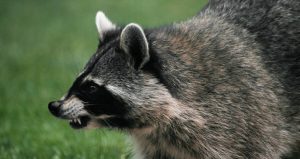
Raccoon Removal in Raleigh-Durham
Raccoons thrive in every county in North Carolina. Since 1987 evidence suggests the raccoon population is growing. Their preferred habitat has easy access to water, Read More »
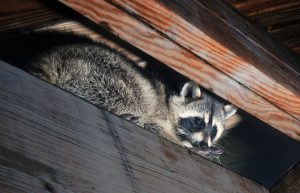
Raccoon in Attic in Flower Mound
A homeowner in Flower Mound heard loud thumping noises in the middle of the night. They investigated their attic and found dark, tubular droppings. During Read More »

How to Trap Raccoons in Jacksonville, FL
The increasing development in Jacksonville might actually benefit raccoons. Found throughout Florida, their natural habitat has plenty of trees and a reliable source of water. Read More »

Raccoon Removal in Dallas, TX
Raccoons can wreak havoc trying to gain entry to your home and cause significant damage creating a den in your attic. They can cause a Read More »
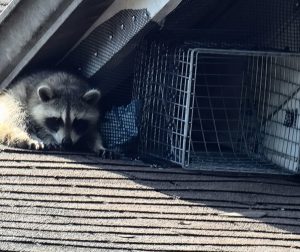
Raccoon Removal in Dallas-Forth Worth
Raccoon damage to yards, roofs, attics, and crawlspaces costs homeowners thousands of dollars in repairs every year (a standard homeowner’s insurance policy might cover the cost of Read More »
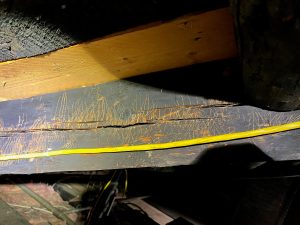
Raccoon Removal in Boston
Raccoons live throughout Massachusetts except for Nantucket in a variety of habitats including residential and urban areas. Food sources and den sites attract raccoons to Read More »


